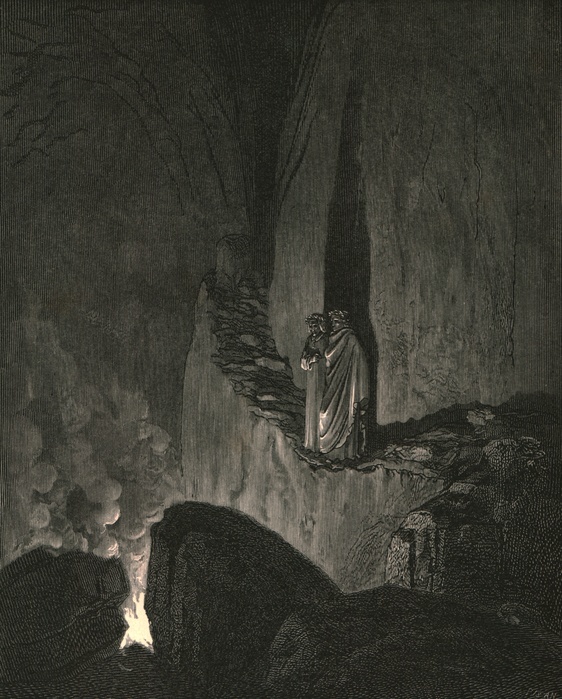
ED
'The guide, who mark'd how I did gaze attentive, thus began', c1890. Creator: Gustave Doré.
'The guide, who mark'd how I did gaze attentive, thus began: "Within these ardours are the spirits, each swath'd in confining fire"', c1890. Dante and the Roman poet Virgil observe the false counsellors being burned for eternity. Illustration from "The Vision of Hell" (Inferno), the first part of "The Divine Comedy" (La divina commedia) by Dante Alighieri. This long, narrative poem, written in Italian c1308-1321, tracing Dante's imaginary journey from Hell, through Purgatory and finally to Heaven and a beatific vision of God, has been published numerous times. This edition, published late 19th century, is illustrated by Gustave Dore. [Cassell Petter & Galpin, c1890]
Details
ID
109563484
Collection
License type
Editorial
Photographer
Creation date
12-08-2019
Contact Aflo for all commercial uses.

More
Top Categories
